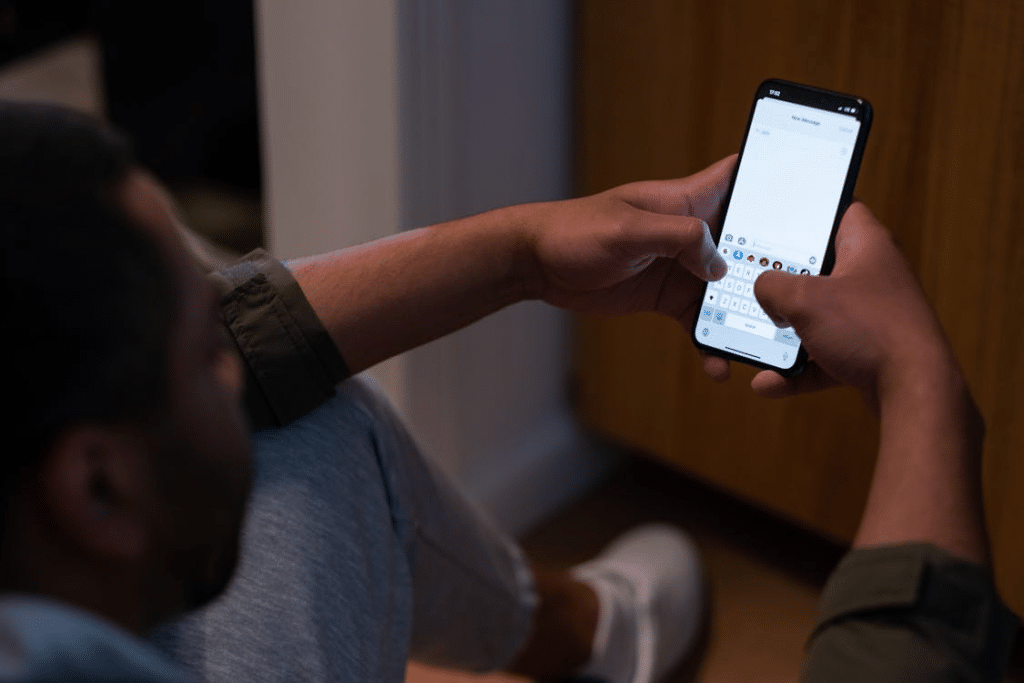
You tell your friends you’re fine. You swipe through dating apps, flirt here and there, maybe even go on a few dates. But at night, when the noise dies down, something still feels off. You’re not really sad, but you’re not happy either.
Most men cope with breakup pain by suppressing feelings rather than processing them, which leads to emotional numbness, not closure.
You Don’t Feel Much of Anything Anymore

You’re not crying or angry. You’re just blank. When you bottle up grief, your brain numbs itself to avoid pain, but it also blocks joy. This emotional detachment is the mind’s way of saying, “I’m not ready to deal with this yet.” If you notice you’re indifferent about everything, like work, friends, even dating, that’s avoidance dressed as control.
You Say You’re Over It, But Still Talk About Her

You insist she’s history, but somehow she sneaks into every conversation in a joke, a comparison, or a random story. If her name still slips out often, it’s your unresolved emotion. A study by the University of Arizona found that people who talk about their exes frequently after a breakup still have active emotional bonds. You’re re-living.
You Feel Nothing When You See Her Online

You scroll past her profile like she’s invisible, but that “nothing” you feel is emotional frostbite. True closure brings calmness. When you have to suppress your reaction to her posts, it means you’re still managing your emotions around her. Emotional control isn’t the same as emotional freedom. It’s just a longer leash.
You Avoid Relationships That Feel Too Real

You might date casually, but the second someone wants deeper intimacy, you pull away. You tell yourself you’re “just not ready,” but what you really mean is, “I don’t want to risk feeling that again.” Emotional avoidance is a classic defense mechanism. You’re trapping yourself in loneliness disguised as safety.
You Compare Everyone to Her

You notice how every woman laughs differently, looks different, or never quite “gets you” like she did. That’s your brain still measuring love in her shadow. Comparison is a subtle form of attachment. It keeps her emotionally alive in your mind. Until you stop using her as your reference point, every new relationship will feel like an imitation.
You’ve Become Emotionally Minimalist

You’ve convinced yourself that wanting less means needing less. You pride yourself on being detached. No drama, no expectations, no vulnerability. But apathy isn’t wisdom. It’s fear wearing sophistication. Emotional minimalism is a midlife man’s coping strategy, and it keeps real intimacy out of reach.
You Miss the Routine, Not the Relationship

Sometimes, it’s not her you miss, but it’s the version of life you had with her. The shared mornings, the small talk, the texts. You miss the rhythm. But that’s still attachment. Humans form neurological bonds to routines, not just people. You’re mourning familiarity, but it still keeps you stuck.
You Don’t Trust New Women Easily

Every new woman feels like a potential betrayal waiting to happen. You assume the worst, expect disappointment, and secretly sabotage good connections. That’s residue from old pain. Men who haven’t healed often project past hurt onto future partners. They mistake protection for prudence.
You Feel Irritated When Others Talk About Love

When your friends talk about being in love, you roll your eyes or change the subject. Deep down, it bothers you because you don’t trust it anymore. This bitterness is the emotional hangover of heartbreak. It’s your ego’s way of saying, “If I can’t have it, it’s probably not real anyway.”
You’ve Stopped Expecting Emotional Connection

You’ve quietly given up on being truly understood. You tell yourself men aren’t meant to be emotional, or that love just fades with age. But that’s a lie you tell to justify numbness. An emotional connection belongs to anyone brave enough to stay open after being broken. The fact that you crave it but avoid it means you’re still carrying your ex in your silence.
You Keep Everything “Surface-Level”

You can talk for hours about sports, politics, or work, but you deflect when someone asks how you feel. You’ve become a master of shallow conversation. Emotional shallowness is comfort for the wounded. It keeps you from being exposed, but it also keeps you from being known. Real healing begins when you stop being the version of yourself who never admits to hurting.
You Overwork to Avoid Thinking

Your schedule is full, your phone never stops buzzing, and you take pride in being “too busy.” But constant productivity is often emotional anesthesia. When you work nonstop, you drown the silence that reminds you of her. Harvard Business Review even calls this “achievement addiction.” It’s a way men escape emotional discomfort by chasing goals instead of peace.
You Keep Hoping She’ll Reach Out First

You tell yourself you’ve moved on, yet deep down, you still check your phone hoping she’ll text. You wonder if she misses you, if she’s happy, if she ever looks back. That quiet hope is self-denial. You’re waiting for someone to validate the feelings you refuse to process yourself. Until you let go of that fantasy, you’re still living in the past.
You Avoid Places That Remind You of Her

You skip restaurants, songs, or even TV shows that remind you of her. You’re just hiding from healing. Exposure is part of closure. Every time you avoid a memory, you give it power. Healing begins when you can face the ghost without flinching.
You Think Being Alone Means You’re Strong

You wear your solitude like a badge of honor. But strength is resilience. Loneliness disguised as independence only deepens emotional detachment. Studies found that long-term emotional isolation can mimic symptoms of depression, especially in older men. You’re disconnected.
You Keep Telling Yourself You’re Fine

It’s the armor you wear when your heart is still bleeding. Saying you’re fine keeps people from asking questions, but it also keeps you from healing. Emotional shutdown might protect you short-term, but it kills connection long-term. The only way to truly move on is to admit you’re not over it yet.






Ask Me Anything